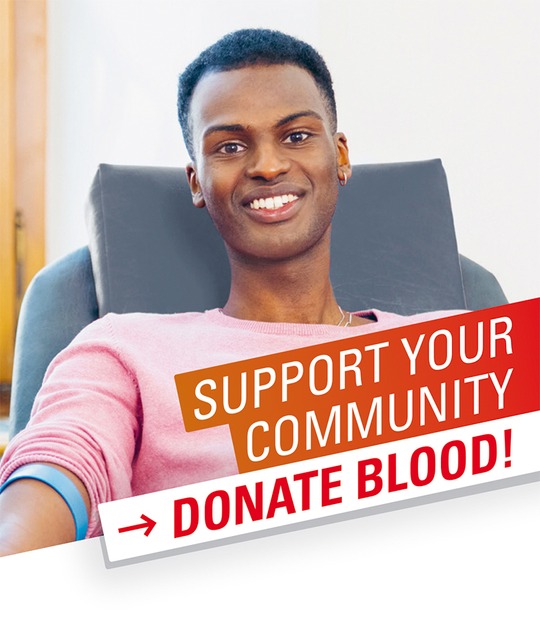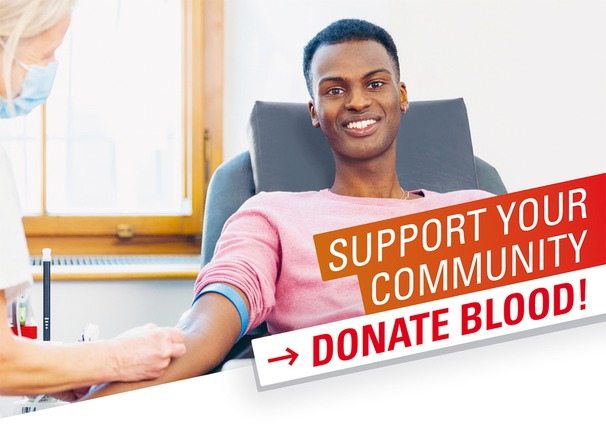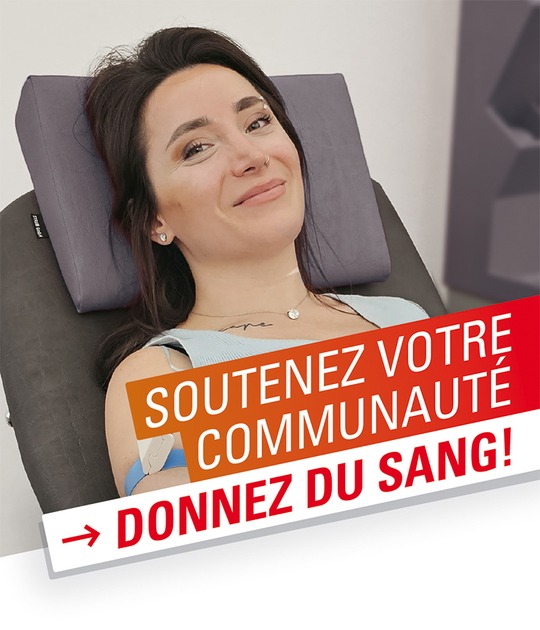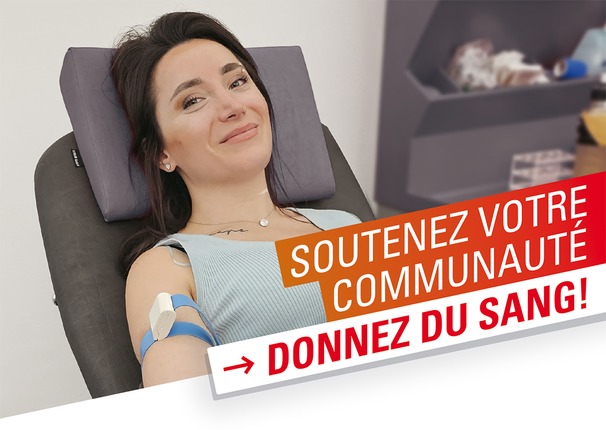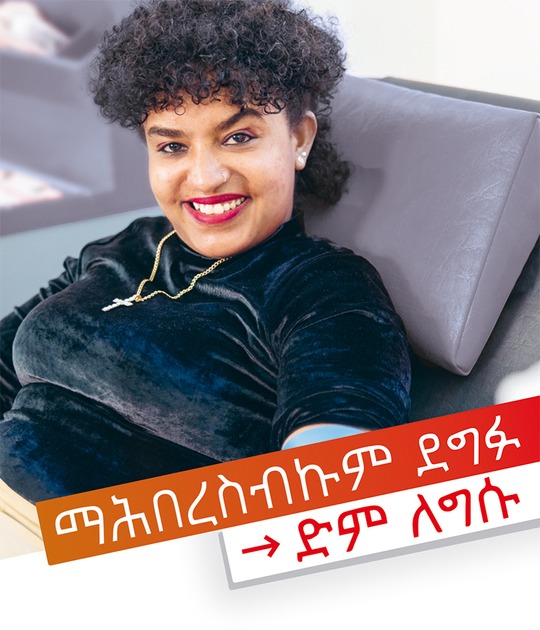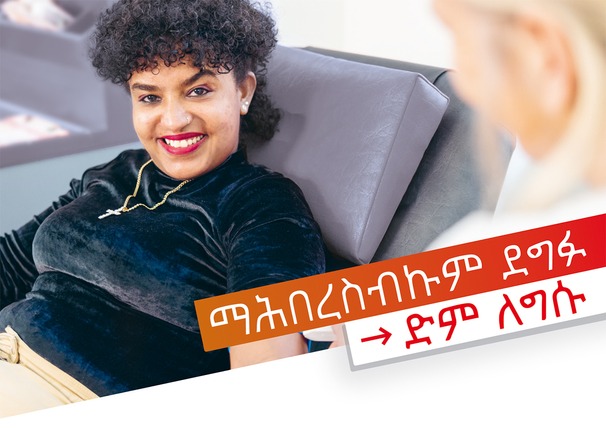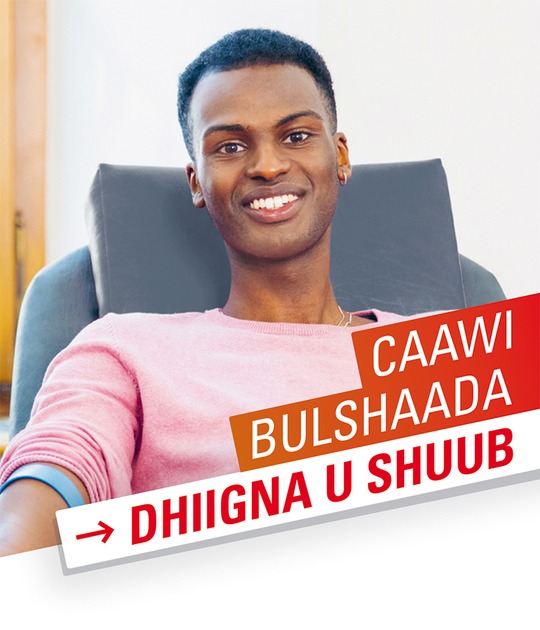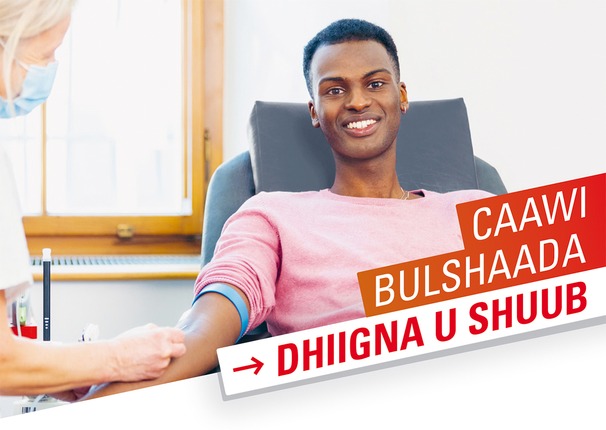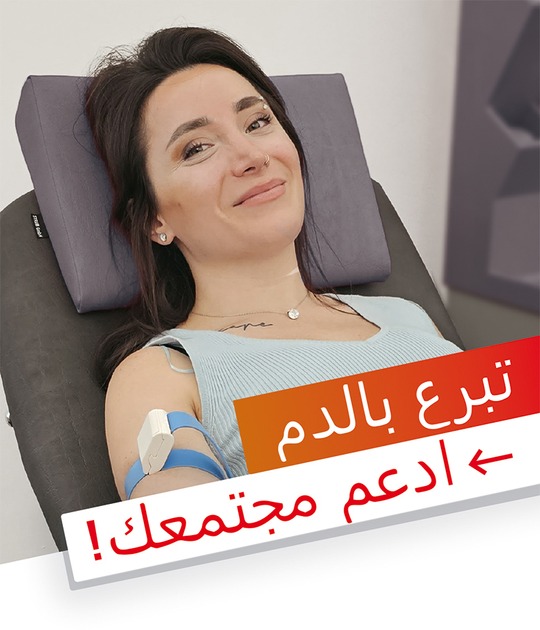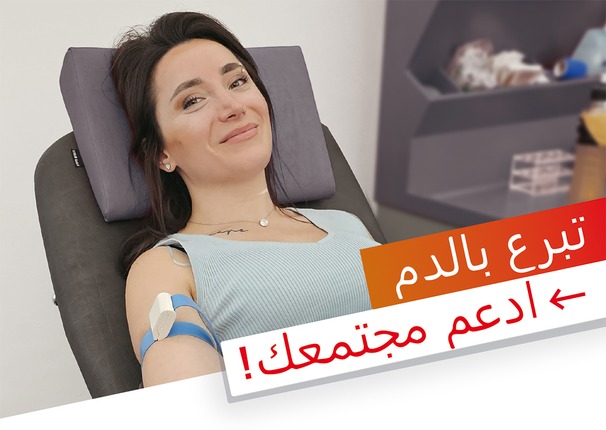Blood Donation Saves Lives.
Accidents, childbirth, surgeries, cancers: all of these situations are associated with a need for blood. And blood cannot be manufactured in lab or a factory. In Switzerland, our blood supply comes from volunteer donors. There are a great many different blood groups, so when a transfusion is necessary, it is important that the markers determining the blood group of the donor correspond to those of the recipient. Blood groups are inherited. Finding a match between donor and recipient is essential!
Why should I donate blood?
Because you may save someone’s life by doing so. A donation from someone else may one day save yours.
Why is blood donation so vitally important?
People can suddenly, urgently need blood – after an accident or childbirth, during a surgical procedure or due to a particular blood disease (such as sickle-cell anaemia).
We search for the match!
Many factors have to match in order for donated blood to be suitable for a patient. In Switzerland, there is a great need for blood donated by persons of African or Asian descent.
Are there risks associated with donating blood?
In general, no. Some people may feel a bit tired after donating blood, due to the volume of blood collected (approx. 450ml). A healthy body replaces that amount very quickly though. Before every donation, the donor’s health check, and only those who in good health and fit can donate.
This is what will happen when you donate blood:
-
PreparationYou should drink at least 3 to 4 glasses of water on the day you are going to donate.
-
Before donating,we will talk with you while filling out the medical questionnaire. After that, your finger will be given a quick “prick” for the first test of your blood.
-
During the donation,you will lie down on a couch, and the blood will be taken from a vein in your arm. The donation process itself takes about 10 minutes.
-
After donating,you will need to keep lying on the couch for about 5 minutes, to rest. After that, you can enjoy some free refreshments – a snack and something to drink – to boost your fluids and energy level.
We asked, they answered:
Checklist:
Can I donate blood?
You can donate blood if…
-
You feel healthy;
-
you are between the ages of 18 and 60;
-
weigh at least 50 kg;
-
understand and speak German, English, French or Italian
and…
-
you have lived in Switzerland for at least the last 6 months and
-
have not had a malaria infection in the past three years.
-
and it is decided on the spot that blood donation is possible.
Do you have questions about blood donation?
We have put together a selection of the most frequently asked questions and their answers.
-
If they feel well and fit, men can donate four times a year, women three times.
-
People who suffer from sickle cell disease are not eligible to donate blood, nor are any family members who carry the genes associated with those disorders. Regular Blood donations are particularly crucial for people with these diseases, though, so please encourage your community to donate.
-
A healthy adult stores about around 4000 mg of iron in their body. Each time you donate, you lose about 250 mg of that iron. Iron is bound up in the pigment haemoglobin, which is found in red blood cells, so people with a severe iron deficiency usually have a correspondingly low haemoglobin level. For this reason, this value is checked before every donation. If your value is too low, you will not be able to donate, unfortunately.
-
You can donate blood if your diabetes is managed with oral medication only and is well under control. Unfortunately, blood donation is not possible for those whose insulin is administered by injection.
-
Yes. The minimum weight of 50 kg is an absolute criterion. You must meet it to donate.
-
The possibility of transmission of variant Creutzfeldt Jakob disease (vCJD) through a blood transfusion is the reason for ineligibility in your case. Variant CJD is caused by prions (protein infection) and is best known as “mad cow disease” (or BSE), the name it bears when found in animals. Globally, the United Kingdom was the country most severely affected by BSE, and as a result, it also had the greatest number of vCJD cases. The ban on donations is intended to rule out every conceivable risk of transmission, as prions cannot be detected by today’s tests.
If you have any further questions, please contact your
REGIONAL BLOOD TRANSFUSION SERVICE